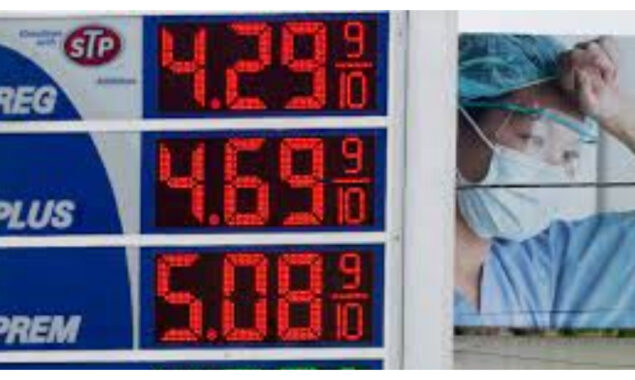‘The Indian government is planning for a Muslim genocide on the scale of the Holocaust.’
ISLAMABAD: The Indian government is planning for the genocide of Muslims by...

NEW DELHI: India announced a series of modifications to the tax system imposed on key commodities on Saturday in an effort to protect consumers from rising prices in the face of high inflation.
Excise duty on petrol would be slashed by 8 rupees ($0.1028) per litre, and diesel will be cut by 6 rupees per litre, according to Finance Minister Nirmala Sitharaman.
According to her, the new tax regime on gasoline and diesel could result in a loss of around 1 trillion Indian rupees in annual revenue for the government due to lesser collection.
In order to lower raw material costs for local market demand, the government also reduced import duties on anthracite, PCI coal, and coking coal.
The latest steps will take effect on May 22, according to a government notification issued after Sitharaman’s remarks. She also asked state governments to follow suit with similar fuel price reductions in accordance with federal plans.
In New Delhi, a litre of petrol costs 105.41 rupees, while diesel costs 96.67 rupees.
Under a welfare scheme for women below the poverty line, the government will also pay a new subsidy of 200 rupees per cooking gas cylinder to almost 90 million people.
According to Sitharaman, the subsidy will generate roughly 61 billion Indian rupees in annual revenue.
“Prime Minister Narendra Modi has instructed all government departments to act with sensitivity and provide aid to the people.”
The government was also aiming to minimise the cost of end items by lowering taxes on raw materials for plastic manufacturing.
The recent steps, according to experts, will undoubtedly raise fiscal concerns and raise doubts about the government’s ability to fulfil its deficit target of 6.4 percent of GDP for 2022-23.
However, ahead of elections to numerous Indian state legislatures this year, inflation has become a big concern for Modi’s government.
As a result of the rapid increase in inflation, businesses’ input costs increased.
The central bank responded by raising interest rates during an unexpected policy meeting this month.
“Today’s choices, particularly the one relating to a large reduction in gasoline and diesel prices, will favourably impact different industries and offer relief to our countrymen,” Modi tweeted. “It
Catch all the International News, Breaking News Event and Latest News Updates on The BOL News
Download The BOL News App to get the Daily News Update & Follow us on Google News.